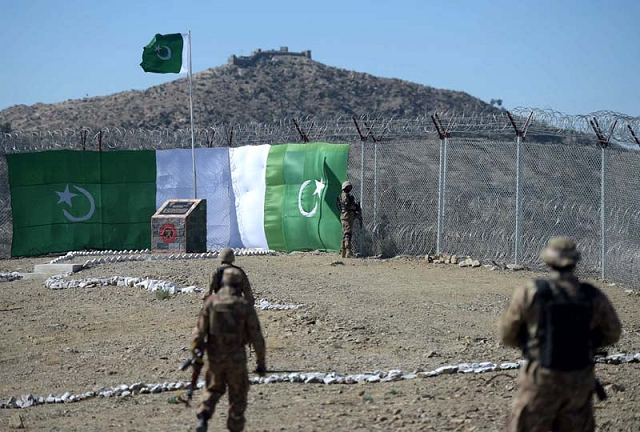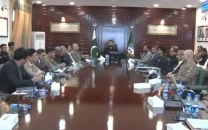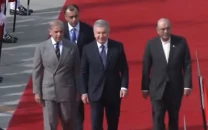Diplomacy calms Pak-Afghan border
Situation still remains delicate after days of tensions

After two days of intermittent exchange of fire, guns were silent on Sunday on the border after Pakistan and Afghanistan activated diplomatic channels to lower tensions, according to sources familiar with the development.
They said hostilities may have ceased on the border for now but the situation was still very delicate. Sunday saw no incident of exchange of fire after relevant authorities from both sides made contact and agreed not to escalate the situation further, the sources said.
Thursday and Friday saw heavy exchanges of fire between Pakistani forces and Taliban troops in different locations on the border. Pakistan issued no statement about the tensions, but the Afghan side claimed it struck targets across the border to avenge the reported air strikes in Paktika province on the night of December 24.
Sources here, however, dismissed the Afghan claims. "On the night of December 27-28, a group of 20-25 Tehreek-e-Taliban Pakistan (TTP) fighters attempted to infiltrate Pakistan from two locations in Kurram and North Waziristan, using Afghan Taliban border posts," they said, adding that Pakistani security forces acted promptly and thwarted the infiltration attempt.
In the early hours of December 28, the source continued, the insurgents once again used the Afghan Taliban posts to attempt infiltration into Pakistan. Following the failed infiltration attempts, insurgents and Afghan Taliban jointly launched unprovoked heavy weapon fire on Pakistani posts early on Saturday. Pakistan's security forces responded with a strong and effective retaliatory response.
According to reports, significant losses were inflicted on the Afghan side. "Effective retaliation forced the Afghan Taliban to abandon six posts and retreat," the sources said. Pakistan's security forces suffered no fatalities, with only three personnel reported injured.
Pakistan has repeatedly urged the interim Afghan government not to allow the Khawarij faction to use Afghan territory against Pakistan. The sources said that instead of curbing the TTP or taking action against terrorist elements, the Afghan Taliban continue to support them.
"TTP operates freely in Afghanistan, extensively using Afghan territory for anti-Pakistan terrorist activities," the sources said. They added that Pakistan's security forces possessed the capability to deliver a decisive response to any form of aggression.
Meanwhile, considerable progress was made during Ambassador Muhammad Sadiq's visit to Kabul and certain decisions were taken to take the process forward. Sources familiar with this development said that during the visit both sides agreed to start high-level exchanges, and some ministerial visits were planned starting next month.
However, after the recent spike in tensions, the planned high-level exchanges that were to kick off in January have now been put on hold. The sources, nevertheless, were confident that the process would be back on track as stakes were high for both sides.
According to the sources, during Ambassador Sadiq's visit, the Afghan Taliban leadership claimed they were not allowing the TTP to launch attacks inside Pakistan. When the Pakistani side confronted them with some hard evidence indicating that the latest weapons possessed by the Afghan Taliban were being used by TTP terrorists, Taliban officials had no clear answer.
The sources said Pakistan informed Kabul in clear terms that any cross-border terrorist attack would be met with a strong response from Pakistan and that, if the Afghan Taliban had no control over their territory, Pakistan would make sure that such free space available to terrorists was not misused.



















COMMENTS
Comments are moderated and generally will be posted if they are on-topic and not abusive.
For more information, please see our Comments FAQ